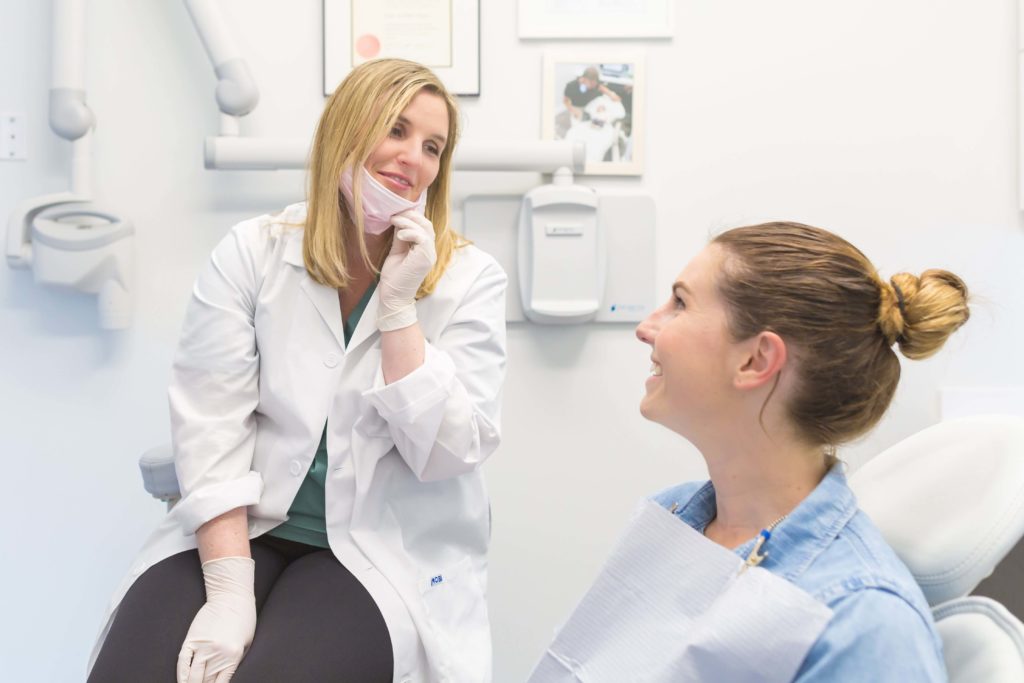Frequently Asked Questions
What is a dental specialist?
Following eight years of undergraduate and professional training education, a dentist recieves their DDS degree (Doctor of Dental Surgery). A dentist may choose to specialize in a branch of dentistry which involves three to four years of further education and training in a specific branch of dentistry.
There are ten recognized specialties in Ontario:
- Prosthodontics (specialzing in replacement and restoration of missing/broken teeth)
- Periodontics (specializing in prevention and treatment of gum and bone diseases “gingivitis/periodontitis”)
- Endodontics (specializing in root canal treatment)
- Orthodontics (management of malaligned/crowded/spaced teeth)
- Pediatrics (treatment of infants and children)
- Dental Anesthesia (specializing in sedation and general anaesthesia “sleep dentistry”)
- Oral and Maxillofacial Surgery (specializing in various oral surgeries)
- Oral and Maxillofacial Radiology (specialize in diagnostic imaging)
- Oral Medicine and Pathology (specializing in diagnosis of pathologies)
Are regular dental cleanings necessary?
Yes, a routine hygiene schedule, every 3 or 6 months (as recommended by your dentist) and an annual dental check-up are critical to disease prevention and oral health. Maintenance of oral health is the key to preventing diseases that can require costly and complex treatment. For this reason, routine visits to identify and treat dental issues before they progress to cause irreversible damage are recommended.
Other than routine hygiene appointments, you should have an annual check-up with your dentist at which they can take x-rays. You should contact your dentist when you experience pain, have inflamed gums or loose teeth, suffer oral or facial trauma or injury, have difficulty functioning (chewing, speaking, swallowing) or if are unhappy with the appearance of your smile.
Do I Need to See a Dentist Even If My Teeth Feel Fine?
Not all dental problems have obvious symptoms at first. Dental problems can develop without you noticing. Annual dental check-ups provide an opportunity to identify problems or oral diseases before they progress to become painful or require expensive treatment. Routine dental check-ups can also help you maintain function and keep your smile looking great. We know how important it is to feel comfortable with your smile.
At What Age Should I Bring My Child To See The Dentist?
Professionals throughout the dental industry as well as the American Academy of Pediatric Dentistry (AAPD) agree that a child’s first dental appointment should happen as early as six months of age. This is usually when the first baby teeth have erupted. Exposure to dental care at a young age is important to developing a positive association with the dentist and ensuring oral health is prioritized throughout the child’s life. Assessing the health of your child’s teeth is important to ensure proper function, nutrition, speech development and cleaning techniques, as well as to reduce the risk of decay, and ensure there is adeuqate space for eruption of permanent teeth.
When Should I Change My Toothbrush?
We recommend changing your toothbrush or toothbrush head at least every three months. Other factors like gum disease, a recent cold or herpes simplex virus flare-up you may need to change your tooth brush more frequently. Keep your toothbrush clean by rinsing well with hot water after brushing and storing upright in dry place between uses.
How Do I Know If I Have Gum Disease?
Plaque and bacteria present in the mouth, if left unremoved, accumlate and caused gingivitis (gum inflammation) and peridontitis (gum and bone inflammation). Gingivitis results in inflammed, red, easily bleeding gums and gum recession. Periodontits begins as gingivitis and advances to a more severe disease associated with irreversible bone loss, mobility of teeth and eventual tooth loss. Risk factors that increase susceptibility to gingival and periodontal diseases include smoking or chewing tobacco diabetes mellitus, certain medications, and genetics.
Maintaining a complete at-home oral hygiene routine coupled with periodic hygiene appointments and dental check-ups are critical to reducing the risk for gingivitis and periodontitis.
Some of the most common signs of periodontal disease are the following:
- Red, swollen, or bleeding gums
- Receding gumlines
- Chronic bad breath
- Loose teeth and/or loss of teeth
- Extreme tooth sensitivity
- Receding gumline
Do You Accept Insurance?
Yes, we accept all major insurances.
What Payment Methods Do You Accept?
For your convenience, we accept cash, personal cheques, Visa, Master Card, AmEx, and Debit. If you have any more questions regarding payment methods, please give us a call at [phonep] and we’ll do our best to find the right solution for you.

